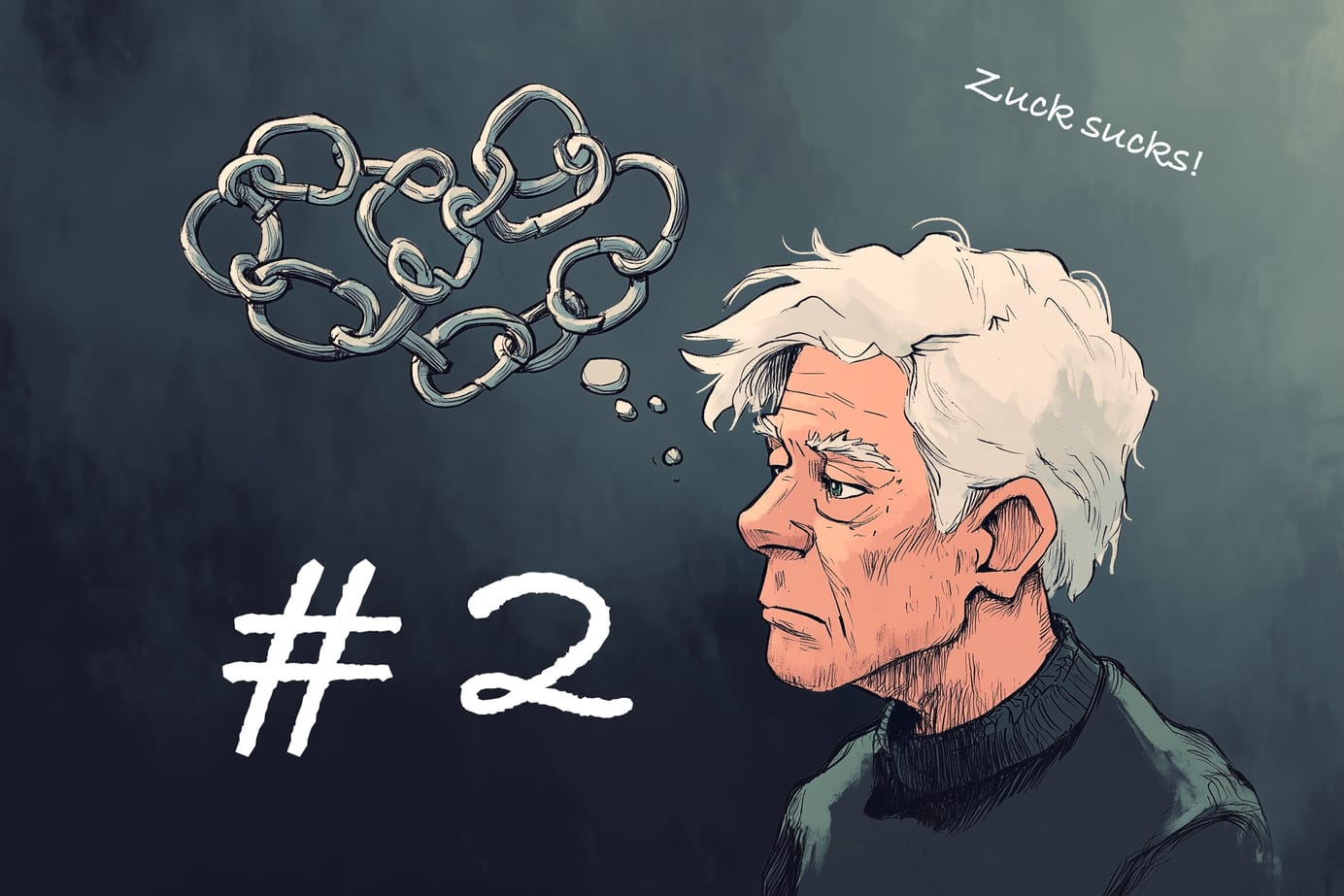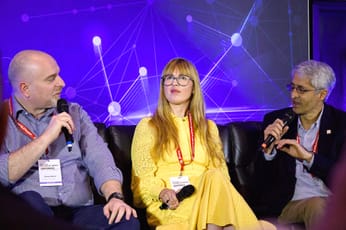
Facebook is done with our shit, frankly
It's never easy being dumped. But Meta has dumped us good and hard. We need to accept that — and move on.
Those of you with long memories will recall that many moons ago, I wrote that Facebook was going through an ongoing, slow breakup with journalism:
In the end, though, the relationship we once “enjoyed” with Meta properties is over. The divorce is underway and, perhaps, once it’s finalised, we can renegotiate a new relationship, that’s more like casual acquaintances than and deeply unhealthy relationship with co-dependence and toxic power relationships.
Well, now it’s truly over. We’re in the “splitting the CD collection (ask your parents…) and bitching about your ex” phase of the divorce. No amount of counselling will get the relationship on track. IT’S OVER.
You need to accept that.
Yes, I know it’s difficult to let go. The good times were so good, weren’t they? The traffic was free and easy. The social videos were everywhere, and went viral so smoothly. You could trust Facebook to handle all that messy community stuff for you, and you could just get on with doing journalism. Oh, remember when they were paying us to do Facebook Live? Great times! And they kept gifting us events, and consultancy, and training and staff for us. It was such a close relationship, wasn’t it? So special.
Journalism, you need an intervention
Well, I love you, journalism industry, and as a loving friend, I need to stage an intervention.
It’s over.
Facebook, or Meta, or whatever it’s calling itself these days, doesn’t love you any more. And it was probably only using you anyway.
I know, I know. I’m sorry.
But if you need more proof, just look at what it just did in Australia:
Facebook and Instagram’s parent company, Meta, has set itself on a collision course with the Albanese government after announcing it will stop paying Australian publishers for news, and plans to shut down its news tab in Australia and the United States. Meta informed publishers on Friday that it would not enter new deals when the current contracts expire this year.
Brutal. Meta’s not even pretending any more. No more cash to prop up the illusion of a relationship. It’s done.
Timeline of Meta divorcing the news business
The signals have been there for a long time now, but have accelerated over the last six months:
September 23: Meta kills the Community News Project
David Sharman for Hold The Front Page:
Around 100 regional journalism jobs are set to disappear by the end of 2024 after Facebook owner Meta pulled its funding for UK local newsrooms. Meta has confirmed it will no longer fund the Community News Project, which has paid for the training and employment of more than 260 regional journalists since its launch in 2018 through a total $17m of funding.
October 23: Head of News Partnerships leaves
Sara Guaglione, reporting for Digiday:
…as a sign of the times, Campbell Brown’s announcement that, after nearly seven years, she is leaving her post as Meta’s head of global media partnerships this fall elicited a metaphorical shrug from publishers. The four publishing executives Digiday interviewed for this story see Brown’s exit as just another nail in the proverbial coffin of the once-committed relationship (at least, financially) Facebook had with publishers.
December 23: Facebook News killed in Europe
Today, we are announcing that in the UK, France and Germany we will deprecate Facebook News – a dedicated tab on Facebook in the bookmarks section that spotlights news – in early December.
Publishers who were being paid for their presence in that section lost that revenue stream.
February 24: Meta to stop recommending news and politics content on Threads and Instagram
Jess Weatherbed for The Verge:
In a blog post published on Friday, Meta announced that it’s expanding an existing Reels policy that limits political content from people you’re not following (including posts about social issues) from appearing in recommended feeds to more broadly cover the company’s Threads and Instagram platforms.
March 24: Meta to kill News tab in the US and Australia
Byron Kaye and Lewis Jackson for Reuters:
Meta will discontinue a tab on Facebook which promotes news in Australia and the United States, it said in a statement, adding that it cancelled the news tab last year in the UK, France and Germany. As a result, "we will not enter into new commercial deals for traditional news content in these countries and will not offer new Facebook products specifically for news publishers," the statement added.
Face it, it’s over

Why am I staging this intervention?
Like any spurned lover, the news industry is still clinging to hope. Sure, traffic to news and politics stories is way, way down, but things aren’t as bad for other topics, are they? Sports, fashion, lifestyle, human interest? That’s holding up, I hear? Maybe Facebook still loves us a bit?
Well, yes. Traffic to these sorts of subjects is holding up. But, for how long?
I spoke to a former student last week who is now quite senior at one of the UK newspapers, and she made the point that, while that traffic is holding up, she can’t count on it. You have to assume it will eventually go away and prepare for that, she pointed out.
She’s right.
Forget the rebound, start making healthy relationships
I’ve been writing for a while about the need for a Twitter X-it plan. (And folks: Threads isn’t it. That’s your Twitter rebound right there.) My traffic from X has cratered post-Musk. I’m very far from alone in that. But it’s far more urgent to have a Meta-exit plan. They’re over us. They’re moving on. They’re hanging out with their new friends, the influencers, and the entertainers. We’re the past, baby, and they’ve moved on.
Facebook’s relationship with news was always transactional, anyway. In the early days, it was about using our content to grow their own user-base. And then, as time went on, the contributions it made towards training and consultancy in the news business always felt suspicious like a bribe, to stop us criticising the social network too much.
So, like any jilted lover, we need to pick ourselves up, dust ourselves down, and stop humiliating ourselves by chasing after someone who doesn’t love us.
And then we need to get back to doing what we should always have been doing: building direct relationships with our audience. That doesn’t mean we can’t still chase traffic on platforms. It’ll always be part of our acquisition mix. But we can’t afford to do that without also having a strategy for taking those mediated relationships, and making them truly our own.
I know your heart is broken. But nothing cures that better than starting some healthy relationships.
Sign up for e-mail updates
Join the newsletter to receive the latest posts in your inbox.










